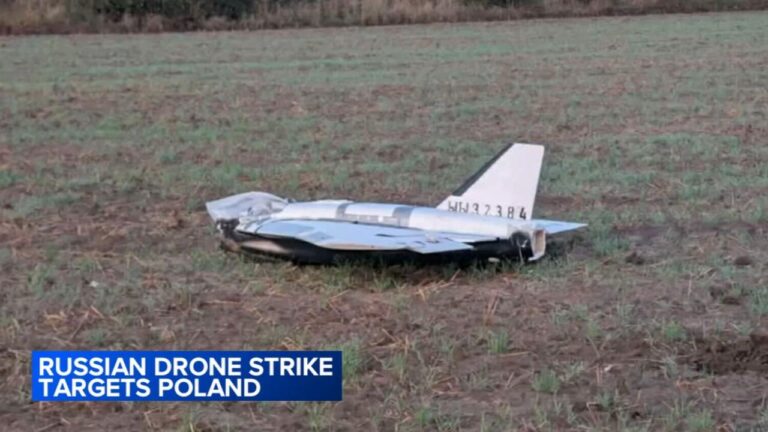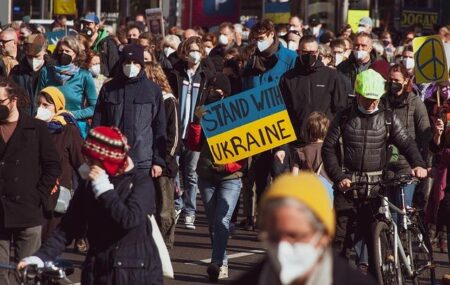As tensions escalate across Europe amid increasing drone incursions attributed to Russia, President Vladimir Putin has publicly dismissed fears of a full-scale invasion. In a statement addressing the mounting security concerns, Putin asserted that Moscow has no intentions to expand its military operations beyond current engagements. This declaration comes as European nations grapple with the growing threat posed by sophisticated unmanned aerial vehicles disrupting airspace and infrastructure, raising alarm over the stability and safety of the region.
Russian Drone Activity Escalates Security Concerns Across Europe
Recent increases in drone incursions linked to Russia have heightened vigilance among European nations, with multiple countries reporting unauthorized aerial activities along their borders. Military analysts warn that these unmanned aerial vehicles (UAVs) pose new tactical challenges, as they can conduct surveillance, disrupt infrastructure, and potentially deliver payloads without direct human involvement. European defense ministers have convened emergency meetings to address the evolving threat, emphasizing coordinated airspace monitoring and enhanced electronic countermeasures.
Despite mounting tensions, Russian President Vladimir Putin has publicly denied any intention to expand military operations into European territory, asserting that Moscow seeks stability in the region. Meanwhile, NATO has stepped up its readiness posture, with deployments across eastern member states. Below is a brief overview of recent drone activity reports and corresponding European responses:
| Country | Reported Incidents | Primary Response |
|---|---|---|
| Poland | 7 | Increased Radar Surveillance |
| Estonia | 4 | Deployment of Anti-Drone Systems |
| Latvia | 5 | Joint NATO Exercises |
| Germany | 3 | Intelligence Sharing Enhancements |
- Heightened aerial vigilance has prompted emergency defense collaborations.
- Technological countermeasures are being expedited to neutralize drone threats.
- Diplomatic communications continue amid contradictory claims from Moscow.
Putin Denies Invasion Intentions Amid Heightened Military Tensions
Russian President Vladimir Putin has categorically denied any intentions of launching a military invasion into neighboring countries, despite escalating tensions fueled by recent drone incursions across European airspace. Moscow insists that these unmanned aerial vehicles are part of routine military exercises and defensive measures, emphasizing the country’s commitment to maintaining regional stability. However, experts remain concerned about the frequency and origin of these drone flights, which have prompted several NATO member states to bolster their defensive postures along Eastern borders.
In light of these developments, international observers have highlighted several key factors influencing the current climate:
- Diplomatic engagements: Ongoing talks aim to de-escalate military provocations and reinforce communication channels between Moscow and European capitals.
- Military readiness: NATO’s increased surveillance and rapid deployment capabilities reflect a strategic response to potential threats.
- Economic considerations: Sanctions and energy dependencies continue to shape geopolitical calculations on all sides.
| Aspect | Current Status | Potential Impact |
|---|---|---|
| Drone Activity | Increased over Baltic and Black Sea regions | Heightened alert among NATO forces |
| Diplomatic Talks | Scheduled for next month | Opportunity to ease tensions |
| Economic Sanctions | Reinforced by EU and US | Pressure on Russian economy |
Experts Urge Strengthened Defensive Measures and Strategic Diplomacy
Amid escalating concerns across the continent, defense analysts are calling for a robust enhancement of European nations’ aerial surveillance and counter-drone capabilities. Experts emphasize that the threat posed by Russian unmanned aerial systems demands an integrated approach that combines technological upgrades with heightened cross-border intelligence sharing. “The capability gap must be closed swiftly to protect critical infrastructures and civilian populations,” stressed Dr. Elena Martov, a leading security strategist based in Brussels.
Parallel to military preparedness, seasoned diplomats advocate for a renewed emphasis on multilateral dialogue aimed at de-escalating tensions. Strategic diplomacy, they argue, remains indispensable in preventing conflict while addressing Moscow’s geopolitical ambitions. The proposed framework includes:
- Establishment of crisis communication hotlines between European capitals and Moscow
- Regular diplomatic forums for transparent discussion of security concerns
- Joint agreements on UAV (Unmanned Aerial Vehicle) monitoring protocols
- Collaborative sanctions and confidence-building measures to deter provocations
| Measure | Primary Objective | Expected Outcome |
|---|---|---|
| Advanced Radar Networks | Early drone detection | Faster threat response |
| Diplomatic Hotlines | Real-time crisis management | Reduced risk of miscalculation |
| Joint UAV Protocols | Transparency in airspace usage | Confidence-building |
| Coordinated Sanctions | Deterrence | Limitation of provocative actions |
The Way Forward
As tensions persist amid the increasing use of drones attributed to Russia over European skies, Moscow’s assurances of no intent to invade offer limited reassurance to wary governments. The evolving security landscape underscores the delicate balance between deterrence and diplomacy, leaving Europe vigilant as it navigates an uncertain future in the face of ongoing regional instability.




